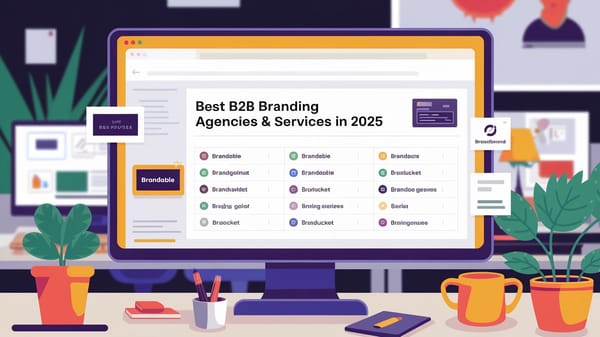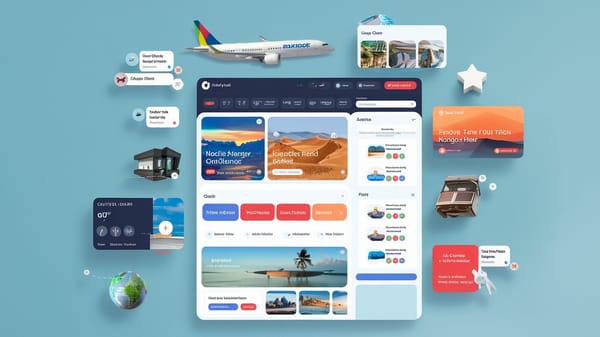Ahrefs vs. Semrush vs. Moz: Learn What The Industry Thinks

In the ever-evolving landscape of digital marketing, selecting the right SEO tool can be a pivotal decision for businesses aiming to enhance their online visibility. Among the myriad of options available, three names consistently rise to the top: Ahrefs, Semrush, and Moz. These platforms are renowned for their comprehensive suite of features designed to optimize search engine performance, yet each offers unique strengths that cater to different aspects of SEO.
Ahrefs is celebrated for its robust backlink analysis and extensive data capabilities, making it a preferred choice for those focused on organic search and link-building strategies. Its vast database and frequent updates ensure users have access to accurate and timely information, a critical factor for effective SEO management. Ahrefs also boasts the second-fastest web crawler, only behind Google, which enhances its ability to provide fresh data.
Semrush, on the other hand, is a powerhouse for competitive analysis and keyword research. It excels in providing insights into paid advertising, making it an ideal tool for businesses that integrate PPC campaigns into their marketing strategies. With a user-friendly interface and a comprehensive feature set, Semrush is designed to cater to a wide range of digital marketing needs, from SEO to content marketing and beyond.
Moz offers a holistic approach to SEO with its emphasis on technical site audits, keyword tracking, and on-page optimization. Known for its user-friendly design, Moz is particularly appealing to those new to SEO tools, providing an approachable platform without sacrificing depth of analysis. Its Domain Authority metric is a widely recognized standard for assessing the ranking potential of websites.
As the industry continues to debate the merits of each tool, the choice between Ahrefs, Semrush, and Moz ultimately depends on specific business needs and objectives. Whether prioritizing backlink analysis, competitive insights, or technical SEO, these platforms offer robust solutions to help businesses navigate the complexities of search engine optimization.
You can also visit Oncely.com to find more Top Trending AI Tools to boost your SEO. Oncely partners with software developers and companies to present exclusive deals on their products. One unique aspect of Oncely is its “Lifetime Access” feature, where customers can purchase a product once and gain ongoing access to it without any recurring fees. Oncely also provides a 60-day money-back guarantee on most purchases, allowing customers to try out the products and services risk-free.
Oncely are hunting for the most fantastic AI & Software lifetime deals like the ones below or their alternatives:

Table of Contents
- User Interface and Experience
- Keyword Research Capabilities
- Backlink Analysis
- Site Auditing Features
- Pricing and Plans
- Pros and Cons of Each Tool
- Ahrefs
- Pros
- Cons
- Semrush
- Pros
- Cons
- Moz
- Pros
- Cons
- Ahrefs
- Final Verdict and Recommendations
- Overall Performance and User Feedback
- Pricing and Value for Money
- Feature Set and Customization
- Customer Support and Resources
- Recommendations Based on Use Cases
User Interface and Experience
When evaluating the user interface and experience of Ahrefs, Semrush, and Moz, each tool offers distinct advantages tailored to different user preferences. Ahrefs is praised for its user-friendly interface with clear labeling, which streamlines SEO tasks and saves time. This design is consistent across both desktop and mobile platforms, ensuring a seamless transition between devices. In contrast, Moz is known for its approachable layout and uncomplicated feature access, making it less intimidating for beginners in SEO. Its straightforward design avoids clutter, resonating well with users who prefer simplicity over extensive customization options. SEMrush, on the other hand, delivers a robust design optimized for handling large amounts of data, which can be a significant asset for desktop users who require comprehensive data analysis.
Keyword Research Capabilities
Keyword research is a critical component of SEO, and each tool offers unique features in this area. Ahrefs provides a Keyword Explorer tool that allows users to search for keyword traffic, ranking difficulty, and additional keyword suggestions. It also enables users to group relevant keyword ideas into clusters, providing a comprehensive view of potential keyword strategies. SEMrush offers a suite of keyword research tools, including a keyword overview, keyword gap analysis, keyword manager, and a keyword magic tool that generates thousands of potential keywords from a single seed keyword. Moz, while offering robust keyword research capabilities, is noted for its detailed reports on keyword search volume, related keywords, and SERP details, although its data index is smaller compared to Ahrefs and SEMrush.
Backlink Analysis
Backlink analysis is another crucial aspect of SEO, and Ahrefs, Semrush, and Moz each provide powerful tools in this domain. Ahrefs is renowned for its extensive backlink database and advanced link-building features, making it a go-to tool for those seeking to strengthen their website’s authority. It offers detailed reports on backlink profiles and their evolution, which ties directly into a site’s organic traffic performance. SEMrush also provides comprehensive backlink analysis, allowing users to benchmark their site against industry competition and identify top-performing keywords. Moz, while offering competitive backlink analysis, is noted for its accuracy in tracking live backlinks, although it may not match the depth of Ahrefs’ database.
Site Auditing Features
Site auditing is essential for identifying and addressing technical SEO issues, and each tool offers distinct capabilities in this area. SEMrush is recognized for its comprehensive site audit features, which bring together advanced insights with user-friendly simplicity. It provides detailed reports on technical issues, helping users optimize their websites for better search engine performance. Ahrefs, while offering robust site auditing tools, is noted for its focus on backlink analysis and may not provide the same level of detail in site audits as SEMrush. Moz, on the other hand, offers solid technical SEO and site audits, making it a good option for businesses looking for straightforward tools to improve their website’s performance.
Pricing and Plans
Pricing is a critical factor when choosing an SEO tool, and each platform offers different plans to cater to various budgets. SEMrush’s pricing starts at $139.95 per month when billed monthly, with a discounted rate of $117.33 per month when billed annually. It also offers a seven-day free trial for users to test its features before committing to a paid plan. Ahrefs provides a low-cost seven-day trial, allowing users to explore its platform at a minimal cost. Moz offers four pricing plans, starting at $100 per month and going up to $600 per month for premium agency-level and enterprise offers. Both SEMrush and Moz provide free trial options, while Ahrefs offers a low-cost trial, making it accessible for users to evaluate their services before making a financial commitment.
In summary, the choice between Ahrefs, Semrush, and Moz depends on specific needs and preferences. Ahrefs excels in backlink analysis and link-building features, making it ideal for those focused on strengthening website authority. SEMrush offers comprehensive keyword research and site auditing tools, providing a powerful solution for competitive analysis and technical SEO. Moz, with its user-friendly interface and competitive pricing, offers a well-rounded solution for businesses seeking straightforward SEO tools. Each platform has its strengths and limitations, and users should consider their specific requirements and budget when selecting the best tool for their SEO endeavors.
Pros and Cons of Each Tool
Ahrefs
Pros
- Backlink Analysis: Ahrefs is renowned for its extensive backlink database, which is frequently updated to ensure data accuracy. This feature is particularly beneficial for users focused on link-building strategies. Ahrefs' backlink analysis capabilities are often highlighted as superior due to the depth and breadth of data provided.
- Keyword Research: Ahrefs offers robust keyword research tools, allowing users to explore keyword difficulty, search volume, and potential traffic. This makes it a preferred choice for those focusing on organic search optimization.
- User-Friendly Interface: Despite its comprehensive feature set, Ahrefs maintains a user-friendly interface, which is appreciated by both beginners and advanced users. The dashboard is organized, making it easier to navigate through various tools and reports.
- Data Accuracy and Freshness: Ahrefs is known for its timely updates and accurate data, particularly in backlink and ranking information. This ensures that users have access to the most current data for their SEO strategies.
Cons
- Pricing Model: Ahrefs' pricing can be a barrier for some users, especially small businesses or individual marketers. The subscription model, combined with additional credits for certain features, may not be cost-effective for all users.
- Limited Content Marketing Tools: While Ahrefs excels in SEO and link analysis, it lacks a comprehensive content marketing toolkit compared to competitors like Semrush. This limitation can be a drawback for users looking for an all-in-one digital marketing solution.
Semrush
Pros
- Comprehensive Feature Set: Semrush offers a wide range of features, including keyword research, competitor analysis, and content marketing tools. This makes it a versatile tool for users with diverse digital marketing needs.
- Competitor Analysis: Semrush is particularly strong in competitor analysis, providing insights into competitors' strategies, keyword rankings, and advertising efforts. This feature is invaluable for businesses looking to gain a competitive edge.
- Content Marketing Capabilities: Semrush's content marketing toolkit is robust, offering tools for content creation, optimization, and performance tracking. This makes it a preferred choice for users focusing on content-driven SEO strategies.
- User-Friendly Interface: Semrush is praised for its intuitive interface, which simplifies the process of navigating through its extensive features. This ease of use is beneficial for both new and experienced users.
Cons
- Pricing: Semrush's pricing can be high, especially for small businesses or individual users. The cost of additional features and add-ons can further increase the overall expense.
- Data Accuracy: While Semrush provides reliable data, some users have noted that its backlink database is not as extensive or frequently updated as Ahrefs, which can impact the accuracy of certain reports.
Moz
Pros
- Domain Authority and Page Authority: Moz is well-known for its Domain Authority (DA) and Page Authority (PA) metrics, which are widely used in the industry to assess the ranking potential of websites and pages. These metrics are valuable for users focusing on link-building and competitive analysis.
- On-Page Optimization: Moz offers strong on-page optimization tools, including site audits and keyword tracking. These features are beneficial for users looking to improve their website's technical SEO and on-page performance.
- User-Friendly Interface: Moz is praised for its simple and intuitive interface, making it accessible for users with varying levels of SEO expertise. This ease of use is particularly beneficial for small businesses and individual marketers.
- Customizable Plans: Moz offers customizable plans, allowing users to tailor their subscription based on specific needs and budget constraints. This flexibility is advantageous for businesses with unique requirements.
Cons
- Limited Features: Compared to Ahrefs and Semrush, Moz offers a more limited set of features, particularly in areas like content marketing and competitor analysis. This can be a drawback for users seeking a comprehensive digital marketing solution.
- Data Freshness: Some users have noted that Moz's data updates are not as frequent as those of Ahrefs, which can impact the accuracy and timeliness of certain reports.
- Backlink Analysis: While Moz provides a solid backlink analysis tool, it is not as extensive or detailed as Ahrefs, which may limit its effectiveness for users focused on link-building strategies.
In summary, each tool—Ahrefs, Semrush, and Moz—offers unique strengths and weaknesses. Ahrefs excels in backlink analysis and keyword research, Semrush provides a comprehensive suite of features with strong competitor analysis and content marketing capabilities, and Moz offers solid on-page optimization tools with a user-friendly interface. The choice between these tools ultimately depends on the specific needs and priorities of the user.
Final Verdict and Recommendations
Overall Performance and User Feedback
When evaluating the overall performance of Ahrefs, Semrush, and Moz, user feedback plays a crucial role. According to various industry reviews, Semrush is often praised for its comprehensive feature set, which includes competitive analysis, keyword research, and a robust content marketing toolkit. Users appreciate its ability to handle large datasets and its extensive reporting capabilities, which allow for up to 3,000 reports per day on its entry-level plan. This makes it a preferred choice for agencies and larger teams that require detailed insights and extensive data handling.
Ahrefs is highly regarded for its backlink analysis and link-building features. It is known for its accurate data and timely updates, which are essential for users focused on improving their website's authority through link-building strategies. Ahrefs also offers a user-friendly interface, which is appreciated by both beginners and experienced SEO professionals.
Moz is often highlighted for its ease of use and straightforward design, making it an attractive option for small businesses and those new to SEO tools. However, it is generally considered to offer less functionality compared to Ahrefs and Semrush, particularly in terms of data volume and advanced features.
Pricing and Value for Money
Pricing is a significant factor when choosing an SEO tool, and each platform offers different pricing structures. Semrush provides a range of plans from $99 to $599, with the option for customized enterprise solutions. Its pricing is justified by the extensive features and data access it provides, making it a cost-effective choice for those who need a comprehensive digital marketing suite.
Ahrefs also offers a subscription-based model, but users have expressed concerns about its credit system, which can limit access to certain features unless additional credits are purchased. Despite this, Ahrefs is considered a good investment for those who prioritize backlink analysis and data accuracy.
Moz offers competitive pricing with plans similar to its competitors, but it stands out by providing API access at a lower price point. This can be advantageous for users who need to integrate SEO data into other systems without incurring high costs.
Feature Set and Customization
The feature set of each tool is a critical consideration. Semrush excels in providing a wide array of features, including SEO, content marketing, market research, and advertising tools. Its ability to offer a complete digital marketing solution makes it a versatile choice for businesses looking to streamline their marketing efforts.
Ahrefs is renowned for its focus on SEO-specific features, such as backlink analysis, keyword research, and site audits. Its tools are designed to provide deep insights into SEO performance, making it ideal for users who need detailed data for strategic decision-making.
Moz offers a more holistic approach to SEO, with tools for on-site audits, keyword tracking, and on-page optimization. While it may not have the breadth of features found in Semrush, it provides a solid foundation for businesses looking to improve their search engine visibility.
Customer Support and Resources
Customer support is another important aspect to consider. Semrush offers the most comprehensive support options, including phone, email, and live chat, along with a multilingual help portal. This makes it a reliable choice for users who may need assistance across different channels.
Ahrefs provides support via email and live chat, and while it lacks phone support, its online resources are extensive and well-regarded. Users appreciate the availability of free learning materials, which help them understand SEO basics before diving into the tool.
Moz offers email-only support, which may be a limitation for some users. However, its help portal is comprehensive and provides valuable insights into using the tool effectively.
Recommendations Based on Use Cases
Choosing the right SEO tool depends largely on specific use cases and business needs. For businesses that require a comprehensive digital marketing solution with extensive data handling capabilities, Semrush is the recommended choice. Its wide range of features and robust support make it suitable for agencies and larger teams.
For users focused on backlink analysis and link-building, Ahrefs is the preferred option. Its accurate data and user-friendly interface make it a powerful tool for improving website authority.
For small businesses or those new to SEO, Moz offers a straightforward and approachable solution. Its ease of use and competitive pricing make it an attractive choice for users who need a solid foundation in SEO without the complexity of more advanced tools.
In conclusion, the decision between Ahrefs, Semrush, and Moz should be based on the specific needs and goals of the user. Each tool has its strengths and limitations, and understanding these can help users make an informed choice that aligns with their SEO strategy.





